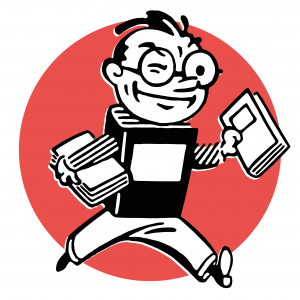When Chip Carter spoke about his father, Jimmy, at a memorial service in Atlanta and told how, when his dad noticed the boy got a poor mark in Latin, Jimmy studied Latin so that he could teach his son, I recognized a standard of fatherhood a good deal higher than my own and I felt bad for a moment until I recalled that it wasn’t my father’s level of fatherhood either. He was a father of six kids and I recall that when I got a C in math, it was my problem and he didn’t get involved.
That was the advantage of growing up in a big family. An only child was under tremendous pressure, observed closely by mom and dad, expected to excel in scholastics and also deportment and personal charm, whereas I, the invisible middle child, was free to lie in a dark space under the basement stairs reading adventure fiction by flashlight.
Jimmy’s trademark was honesty, and as a boy I managed to avoid that as well. When people asked me, “How are you?” I said, “Fine.” “How is school?” “Good.” Telling the truth only led to more questions. We lived near the Mississippi and Mother was fearful that one of us might drown and so I learned to lie when I’d been swimming in the river and this facility has served me well in adult life. A friend brings her wild misbehaving grandchild to visit and I say, “She has so much energy.” A niece introduces me to her gloomy fiancé with eye makeup and an aluminium sport coat, I tell her “You look so happy.” A friend wants me to read his nephew’s poetry and I say, “It’s very engaging.” The kid is 20. He knows how to put a couple dozen cryptic lines on a page that defy interpretation and I don’t want to use the term “monkey manure” and thereby lose the friendship and “engaging” is not what I’d consider praise, nothing that might lead the kid to waste his twenties writing the unreadable.
I expect honesty from my cardiologist and from my sweetheart. I married her for her honesty. I know she loves me and she won’t let me leave the apartment with my fly open or a blob of toothpaste on my cheek. I also recognize a certain narrowing of her eyes when she looks at me in company and it says, “What you just said does not represent you at your best.” Time to correct myself.
I’m a grown-up and I don’t need praise though a historian whose work I admire sent me a fan letter that meant the world to me, but I don’t need more. Some books of mine got fervent praise, others tepid, but none of it made a big impression on me. Praise drifts around like spritzes of aromatic cologne but what matters is the love of rewriting and re-rewriting and revision of the re-rewrite, and then the revision of that, and so on. Professional violinists I know love daily practicing. They return to the Brandenburg No. 6 as a fresh challenge though they’ve been there dozens of times. For a writer, nothing is ever finished. I never read a book of mine after its published because I’ll find flaws in it that can’t be fixed. Too late.
There’s no sense in looking back. You’re always standing on the verge of something new, something you expect to be the best you’ve ever done. If you didn’t think so, why bother?
Which makes adulation of a president as a monarch so weird and to see his election or defeat as a tidal shift in the nation — e.g., the myth of the New Frontier despite Kennedy’s having been elected with a tiny 118,000 vote margin out of 68 million cast. The lives of his family were warped by that myth. Jimmy Carter escaped that. He was defeated and returned to Plains with his wife, Rosalynn, to the small ranch-style home they’d built in 1960. The two of them worked as volunteers building houses for Habitat for Humanity. He taught Sunday School, took up good causes such as human rights and the campaign to eradicate Guinea worm disease, and, as their son said in his eulogy, when one of them was hospitalized, a bed was brought in for the other to sleep in the same room. Historians will do what they will, but the man managed to live his own life as who he was, not as a bird in a silver cage. May angels bear him to his rest.








